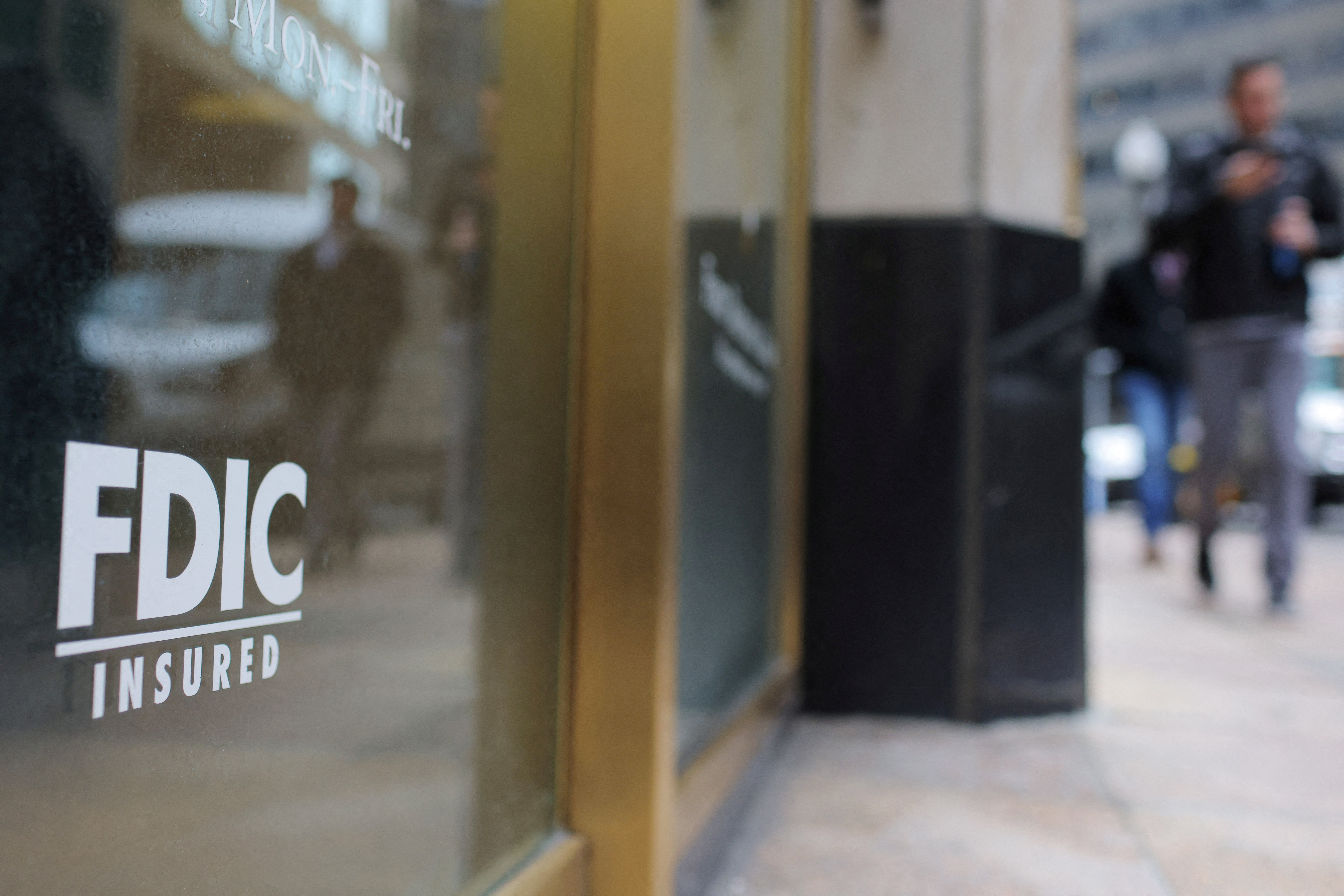
[1/2] An indication checks out “FDIC Insured” on the door of a branch of First Republic Bank in Boston, Massachusetts, U.S., March 13, 2023. REUTERS/Brian Snyder
Might 15 (Reuters) – Banking regulators have actually been pressed by market volatility in current weeks into doing things that they have not truly wished to do, like letting the biggest U.S. bank get back at larger Their hand might be required once again.
Take the case of the Federal Deposit Insurance Coverage Corp (FDIC), among the primary banking regulators. In a December 2021 declaration, Chairman Martin Gruenberg stated the sale of some distressed banks to the similarity JPMorgan Chase & & Co ( JPM.N) throughout the monetary crisis of 2008 had actually probably “increased long-lasting monetary stability threat.”
That had regulators careful of more combination. The weekend in March when the FDIC took control of Silicon Valley Bank after a work on the lending institution set off a more comprehensive deposit flight to security, a few of the biggest U.S. banks at first thought that their quotes would not be welcome, according to 2 sources acquainted with the matter.
They weren’t permitted into the information space up until it was far too late to come up with a quote, among the sources stated.
A month and a half later on, nevertheless, when First Republic Bank stopped working, the FDIC needed to offer it to JPMorgan as it was the least expensive alternative for the deposit insurance coverage fund.
An FDIC representative stated the firm did not leave out the so-called worldwide systemically essential banks (G-SIBs) from bidding on Silicon Valley Bank and welcomed them to do so. The speed of the collapse suggested it took the firm a long time to establish an information space, postponing the procedure. The G-SIBs selected not to bid, suggesting absence of interest in the possession, the representative stated.
Gruenberg did not comment.
An inefficient local banking sector is deeply bothersome. These banks supply credit to huge areas of the U.S. economy, and deposit flight has actually required them to draw back on financing. 3 U.S. banks have actually collapsed and the shares of some others have actually been struck in their wake, with the KBW Regional Banking Index (. KRX) down some 30% given that March 8.
An unpredictable financial outlook on the back of tight financial policy and other threats, such as falling industrial property worths and the U.S. financial obligation ceiling argument, are contributing to the pressure. Continued tension on these banks might well press the economy into an economic crisis.
Although things have actually relaxed significantly given that March, financiers have actually declined to draw the line under the crisis.
So regulators, lenders and other specialists are drifting concepts for extra actions Washington might require to mark out the crisis. These concepts vary from speeding up the speed of approvals of bank offers to increasing the deposit assurances and analysis of financiers who wager stocks will fall.
However those alternatives either motivate things that regulators do not desire, like the development of larger banks or reckless habits, or are actions that have actually not truly operated in the past, like limiting brief selling, according to banking specialists. Some would likewise need legal approval, which is tough to do in a divided Congress.
That leaves regulators with tools that deal with the signs, however have undesirable negative effects and do not supply the remedy.
They have actually supplied banks with lifelines that provide adequate money to fulfill deposit withdrawals, for instance. However the issue now is a crisis of self-confidence, with some financiers questioning the capability of a few of these loan providers to generate income in the longer term.
So as one bank stops working, another enters into the marketplace’s focus, producing a vicious circle and putting pressure on regulators to step in once again.
Treasury Secretary Janet Yellen stated on Saturday that almost all banks had access to enough liquidity however pressure on revenues might result in some midsize bank offers.
” That’s something I believe the regulators will be open to, if it takes place,” she stated.
Reporting by Paritosh Bansal, Extra reporting by Nupur Anand; Modifying by Anna Motorist
Our Standards: The Thomson Reuters Trust Concepts.